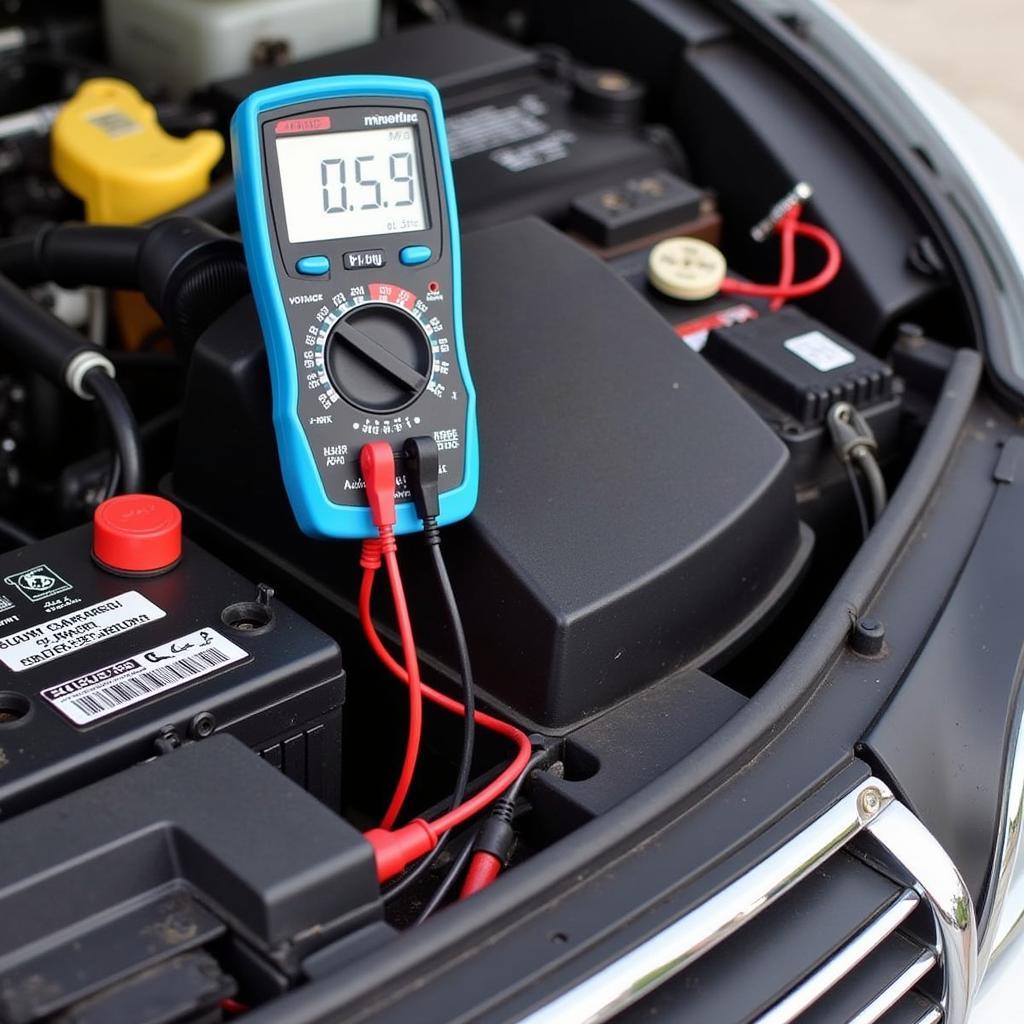Dealing with a malfunctioning anti-theft system in your car can be a real headache. You’re stuck, unable to start your car, and left feeling frustrated. While anti-theft systems are crucial for vehicle security, problems can arise, leading to inconvenient lockouts and potential safety hazards.
This guide will explore the intricacies of automotive anti-theft systems, common reasons they might need disabling, and a step-by-step approach to help you understand how to address these issues effectively.
Understanding Anti-theft System Issues
Why Disable an Anti-theft System?
Before we dive into the how-to, it’s important to understand why you might need to disable your car’s anti-theft system. Here are some common scenarios:
- Malfunctioning System: A faulty system can prevent your car from starting, even with the correct key.
- Dead Key Fob Battery: If your key fob battery dies, the system may not recognize your key, triggering the immobilizer.
- Aftermarket Installations: Adding aftermarket car alarms or remote starters can sometimes interfere with the factory system.
Identifying Anti-theft System Problems
Knowing the signs of a problematic anti-theft system is crucial for a quick diagnosis. Keep an eye out for these common indicators:
- Rapidly Flashing Dashboard Lights: A blinking security or immobilizer light usually indicates an issue.
- Unusual Sounds: Clicking noises from the starter motor or a rapidly chirping alarm could signal a problem.
- Engine Cranks but Won’t Start: If your engine turns over but doesn’t fire up, the anti-theft system might be preventing ignition.
 Car dashboard with warning lights flashing
Car dashboard with warning lights flashing
Essential Tools and Preparation
Before attempting to disable your anti-theft system, it’s vital to have the right tools and resources at hand. Gathering these beforehand can streamline the process and prevent unnecessary delays. Here’s what you might need:
- Vehicle-Specific Repair Manual: This manual is your best friend. It provides detailed wiring diagrams, component locations, and specific instructions tailored to your car model.
- Code Reader/Scanner: A code reader can reveal valuable diagnostic trouble codes (DTCs) stored in your car’s computer, pinpointing the issue’s root cause.
- Basic Hand Tools: A set of screwdrivers, pliers, and a socket wrench are often necessary for accessing and working with electrical components.
Disabling Your Anti-theft System: A Step-by-Step Guide
While the exact method varies depending on the make, model, and year of your vehicle, here’s a general approach to help you get started:
- Identify the Issue: Begin by determining the specific problem with your anti-theft system. Using a code reader or referring to your car’s repair manual can provide valuable insights.
- Locate the Anti-theft System Components: This typically involves identifying the location of the immobilizer module, alarm siren, and related wiring harnesses. Consult your vehicle’s repair manual for precise locations.
- Disconnect the Battery: Before working on any electrical system, always disconnect the negative battery cable to prevent electrical shorts or accidental airbag deployment.
- Disable the Immobilizer: This often involves bypassing or resetting the immobilizer module. Refer to your vehicle-specific instructions in the repair manual, as procedures vary widely.
- Address Alarm System Issues: If the alarm system is malfunctioning, you might need to disable it separately. This often requires locating and disconnecting the alarm siren or control module.
- Reconnect the Battery: After making the necessary changes, reconnect the negative battery cable.
- Test the System: Turn on the ignition and check if the anti-theft system warning lights behave as expected. Try starting your vehicle to ensure the issue is resolved.
 Mechanic's tools and car repair manual
Mechanic's tools and car repair manual
FAQs: Addressing Common Anti-theft System Concerns
Q: Is it legal to disable my car’s anti-theft system?
A: While you can disable certain aspects of your anti-theft system, completely removing or tampering with it in a way that compromises your vehicle’s security might be illegal in some jurisdictions. Consult local regulations and your car’s warranty terms before making significant modifications.
Q: Can I disable the anti-theft system myself, or should I consult a professional?
A: Disabling an anti-theft system often involves complex electrical systems and vehicle-specific procedures. If you are not comfortable working with automotive electrical systems, it’s best to consult a qualified mechanic or automotive electrician to avoid potentially causing damage to your vehicle or jeopardizing your safety.
Q: I’m looking for information on disabling a specific make and model, like a 2008 Honda Accord. Where can I find reliable resources?
A: CARDIAGTECH offers an extensive library of resources, including articles and guides, tailored to various makes and models. For detailed instructions on a 2008 Honda Accord, you can check out our guide: How to Fix Anti-theft on in 2008 Honda Accord.
Remember, working with automotive electrical systems can be complex. If you’re unsure about any step, seek assistance from a qualified mechanic. Safety should always be your priority.


